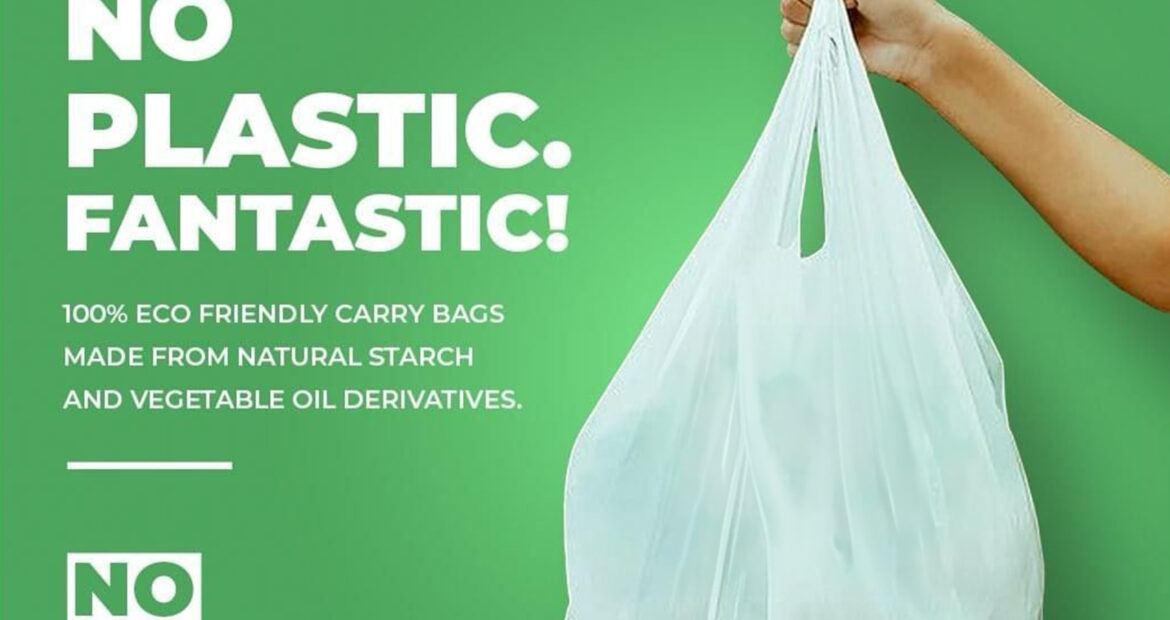- Environmental Friendliness
One of the most significant advantages of biodegradable plastic bags is their reduced environmental impact. Unlike traditional plastic bags that can take hundreds of years to decompose, biodegradable bags are designed to break down naturally into harmless substances when exposed to environmental conditions. This decomposition process helps minimize litter, landfills, and overall plastic pollution, thereby conserving our ecosystems and wildlife.
- Reducing Carbon Footprint
Biodegradable plastic bags are often made from renewable resources like cornstarch or sugarcane, which require fewer fossil fuels for production compared to conventional plastic bags derived from petroleum. Consequently, the manufacturing process of biodegradable bags emits fewer greenhouse gases, contributing to a smaller carbon footprint and reduced global warming potential.
- Versatility and Durability
Biodegradable plastic bags are not just environmentally friendly; they are also versatile and durable. They come in various sizes and thicknesses, making them suitable for a wide range of applications, from grocery shopping to packaging. Their durability ensures that they can hold up to everyday use, providing convenience without sacrificing environmental responsibility.
- Support for Sustainable Agriculture
Many biodegradable plastic bags are sourced from agricultural crops, such as corn or sugarcane. This practice promotes sustainable agriculture by creating demand for these renewable resources. Additionally, biodegradable bags can serve as a source of income for farmers, further incentivizing environmentally conscious farming practices.
- Consumer Appeal
Consumers are increasingly becoming environmentally conscious, and they appreciate businesses that take steps to reduce their ecological footprint. By offering biodegradable plastic bags, retailers can attract eco-conscious customers, enhance their brand image, and strengthen customer loyalty. It’s a win-win situation, where businesses and consumers both contribute to a greener planet.
- Compliance with Regulations
Many regions and countries have recognized the need to address plastic pollution and have implemented regulations to encourage the use of biodegradable materials. Businesses that adopt biodegradable plastic bags can remain compliant with these regulations and avoid potential fines or penalties associated with non-compliance.
Conclusion
Biodegradable plastic bags represent a significant step toward reducing the environmental impact of plastic waste. Their benefits encompass environmental friendliness, reduced carbon footprint, versatility, and support for sustainable agriculture. Additionally, they have strong consumer appeal and can help businesses comply with evolving regulations aimed at mitigating plastic pollution. As we collectively strive for a more sustainable future, embracing biodegradable plastic bags is a step in the right direction, offering a practical and eco-conscious solution to the plastic waste problem.













